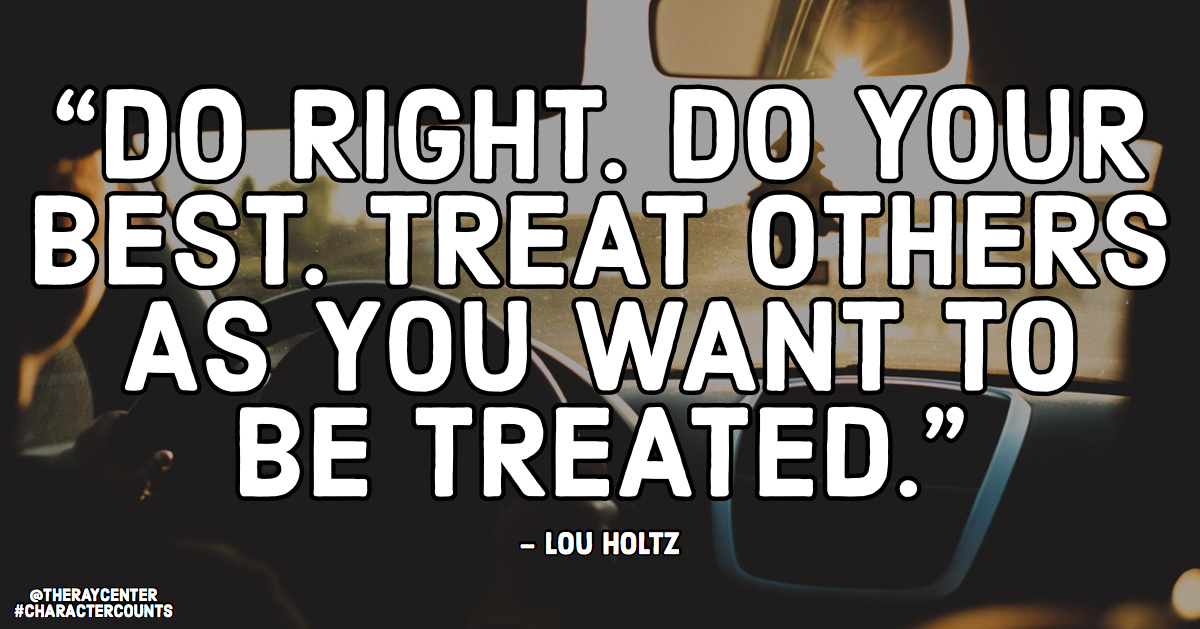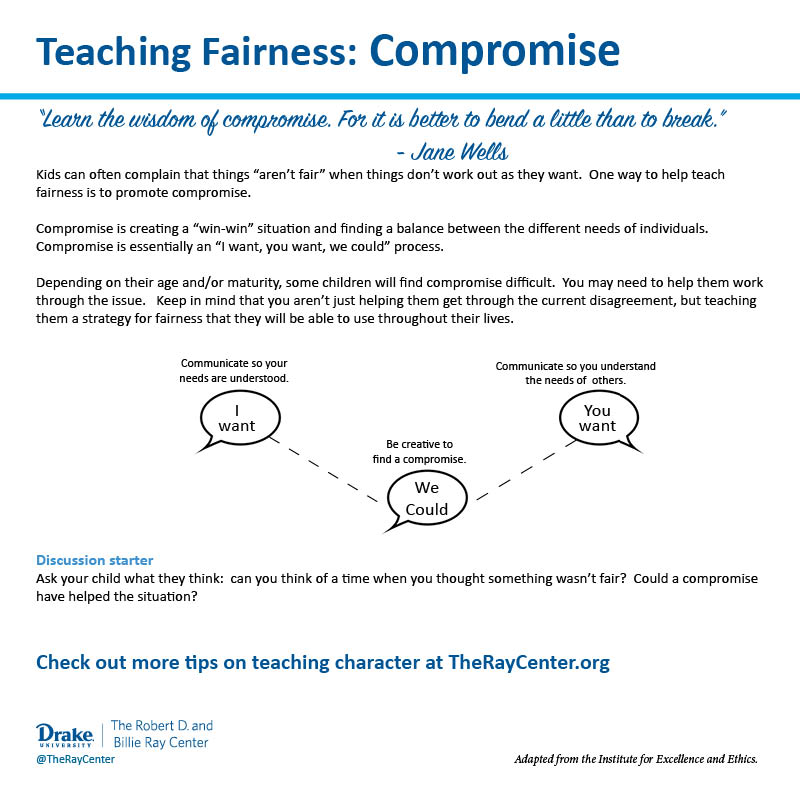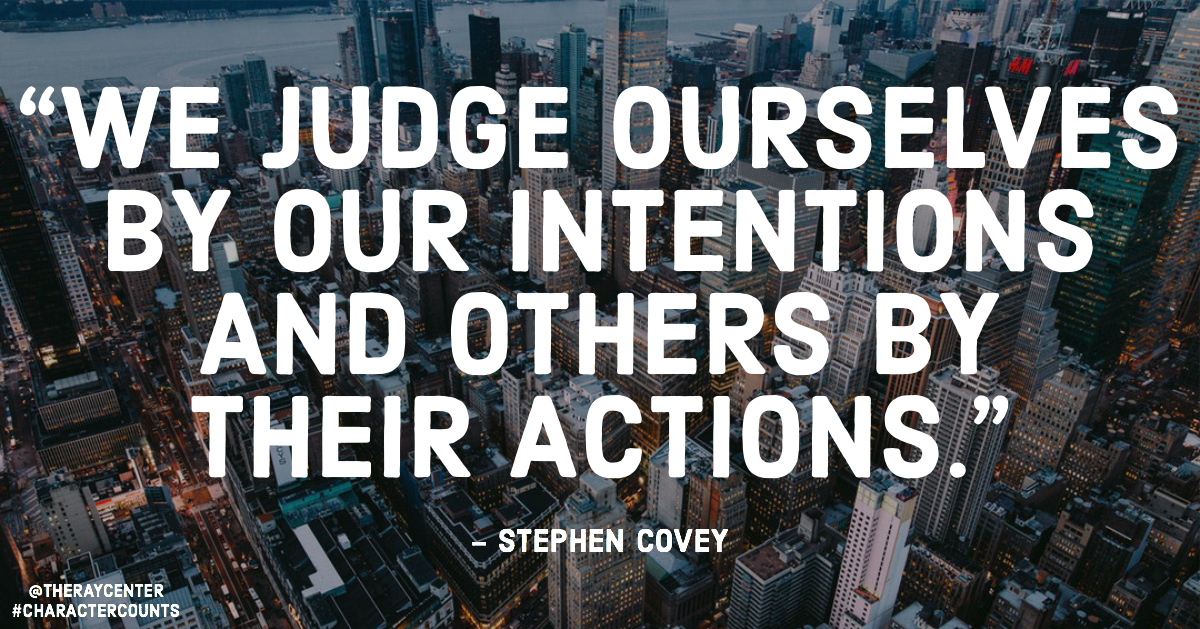Another goal, another dream
Judge
36 ways to build kids’ character

From our guest contributor, Michele Borba.
Here are a few practices from my book, Building Moral Intelligence, that make a difference in raising moral kids. Find ways to use these simple moral-building principles in everyday moments with your children.
1. Show, not tell my kids about moral behavior.
To teach kids good behaviors, you must show kids what the virtue looks like in action. Reduce the lectures. Increase the visuals. Kids also learn more by seeing an example in context not by hearing or reading about it.
2. Emphasize the impact of the virtue.
Show the impact empathy (or respect, kindness, justice, etc). has on others so your child understands it’s important.
3. Expect moral behavior.
If you want your child to feel for others demand your child to feel for others.
4. Look for simple daily moments to expose your child to goodness.
Provide opportunities for your child to experience different perspectives and views.
5. Offer diversity.
Experiencing different perspectives help children able to empathize with others whose needs and views may differ from theirs.
6. Model moral behaviors.
Be sure your behaviors your kids watch are ones that you want them to copy.
7. Expect goodness, period!
If you want your child to act morally, then expect moral behaviors from her.
8. Have ongoing moral chats.
Talk about moral issues as they come up; so your child can hear your moral beliefs. Set unplugged sacred family times when everyone in the house is unplugged-such as during family meals, car rides or outings or activities and stick to them. Don’t relinquish your influence on your child’s moral development to digital devices. Kids don’t learn empathy, values or family memories by facing a screen.
9. Be explicit.
Plainly explain your concerns to your child, set standards, and then stick to them.
10. Acknowledge goodness.
Catch your child acting morally by describing what she did right and why you appreciate it.
11.Take a deep breath!
To teach kids self-control, you must show kids self-control, so be a living example of self-control.
12. Aim for internal motivation.
Refrain from always giving tangible rewards for your child’s efforts so she develops her own internal reward system.
13. Help child learn to manage frustrations and fears.
Your home is the best place for your child to learn how deal with stressful situations. Don’t rob him of the opportunity to learn how to handle frustrations.
14. Boost internal gratification.
Gradually stretch your child’s ability to control his impulses and learn to wait.
15. Be respectful.
Treat children respectfully so that they feel respected and are therefore more likely to treat others respectfully.
16. Make manners count!
Tune up your child’s social graces and make courtesy a priority in your home. Manners are the benchmark for respect.
17. Demand respect.
Do not tolerate any form of back talk or rudeness. Stop it before it spreads.
18.Monitor media diet.
Supervise your child’s media consumption closely. Set clear family standards, and then stick to them! Make sure you are your child’s primary influencer of values.
19. Pass on your values to significant others.
Explain your moral standards to the other adults in your child’s life so you can work together.
20. Surround your child with moral examples.
Make sure you are positive, affirming role model and surround your child with people of high character.
21. Step in and stop unkindness, ASAP!
Take an active stand against cruelty and just plain do not allow it
22. Don’t assume!
Take time to tell and show kids how to be kind (or fair, just, honest, patient, frugal…whatever the virtue you feel are –never assume they have that knowledge.
23. Stress service!
Kids don’t learn how to be kind from a textbook but from doing kind deeds.Encourage your child to lend a hand so he or she will understand the power of “doing good.”
24. Read books as a family!
Find books that are rich with moral dilemmas and ethical characters–like Anne Frank or The Letter from Birmingham Jail. Read and discuss them as a family. Fiction in particular (like To Kill A Mockingbird and Lord of the Flies) is proven to boost empathy.
25. Teach virtue as a VERB not a noun.
The best way to teach kids any virtue is not through our lectures but through our example.
26. Be a moral example.
Become the living textbook of morality that you want your child to copy.
27. Stress WE not ME.
Teach your child from the time he is very young that no one is better than any other person.
28. Stop prejudice!
Refuse to allow discriminatory remarks of any kind in your presence.
29. Halt your biases.
Get in touch with your own prejudices and be willing to change them so your child won’t learn them from you.
30. Encourage cultural heritage.
Nurture in your child a sense of pride in her culture, heritage, and identity.
31. Provide early opportunities for diversity.
Expose your child early to games, literature, and toys that represent a wide range of multicultural groups to boost her or his appreciation and acceptance for differences.
32. Nurture tolerance.
Encourage your child to participate in activities, which promote diversity and nurture tolerance.
33. Stress fairness and justice.
If you want your child to be fair, expect your child to be fair.
34. Teach kids how to be fair.
The easiest way to increase fairness is by reinforcing fair behaviors.
35. Stress upstanding behaviors!
Encourage your child when he encounters unfair treatment to stand up for himself and the rights of others.
36. Find and work on an unjust cause.
Look for opportunities in your neighborhood or community and get involved together in making the world a better place. There is no more powerful way to boost kids’ moral intelligence than to get them personally involved in an issue of injustice and then encourage them to take a stand; they will learn that they can make a difference in the world.
There is no rewind button on parenting, so be intentional when it comes to building your child’s character. Parents who raise good kids don’t do so by accident!
 Dr. Michele Borba is an educational psychologist, parenting expert, TODAY show contributor and author of 22 books including The Big Book of Parenting Solutions: 101 Answers to Your Everyday Challenges and Wildest Worries and UnSelfie: Why Empathetic Kids Succeed in Our All-About-Me World.
Dr. Michele Borba is an educational psychologist, parenting expert, TODAY show contributor and author of 22 books including The Big Book of Parenting Solutions: 101 Answers to Your Everyday Challenges and Wildest Worries and UnSelfie: Why Empathetic Kids Succeed in Our All-About-Me World.
Check out: micheleborba.com or follow her on Twitter @micheleborba.
The same person

The old man and the little cat

The old man and the little cat
Author Unknown
One day, an old man was walking in the forest when he suddenly saw a little cat stuck in a hole. The poor animal was struggling to get out. So, he gave the cat his hand to help him out. But the cat scratched his hand with fear. The old man pulled back his hand screaming with pain, but he didn’t stop. He tried to help the cat again and again.
Another man was watching the scene and said, “For goodness sakes! Stop helping that cat! He’s going to have to get himself out of there”.
The old man continued to help the cat anyway until he finally succeeded, And then he turned to the other man and said, “Son, it is a cat’s instincts that make him scratch, and it is my job to love and care”.
Moral: Treat everyone around you with your ethics, not with theirs. Treat others the way you want to be treated.
Teaching Fairness: Compromise

Good leader
Respect and love
A little crab and his mother

One day, a little crab and his mother were on the beach spending some time together. The little crab got up to move, but he could only walk sideways. His mother scolded him and asked him to walk forward by pointing his toes in front of him. “I would like to walk forward, Mom, but I don’t know how to,” the little crab cried.
Hearing this, his mom got up to show him how to walk forward, but she couldn’t do it. She realized that she was being unfair, apologized sheepishly and sat back down in the sand.
Moral: Don’t condemn someone for not doing something that you yourself are unable to do.




